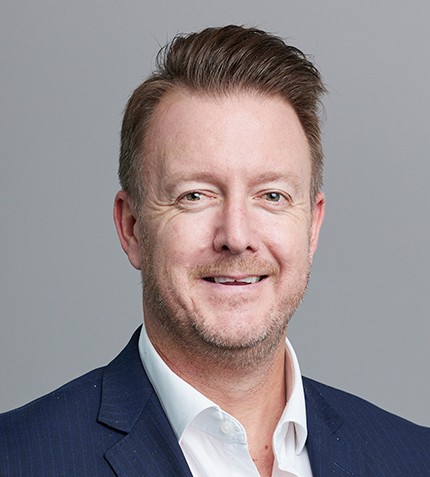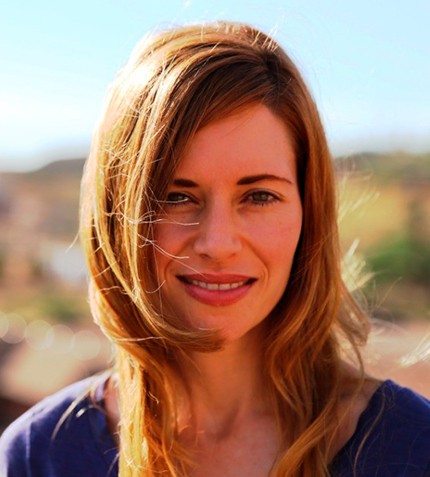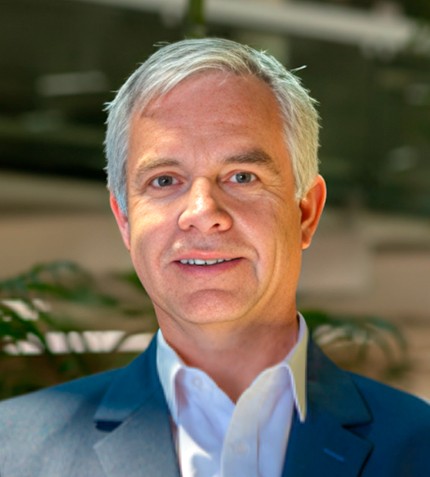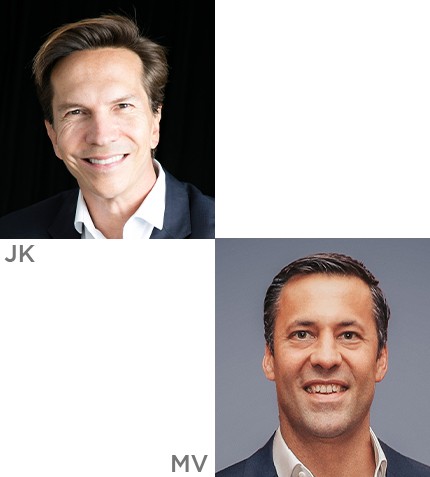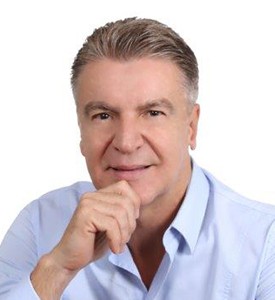
“The next three years are crucial in terms of our technology differentiation, especially for vaccines, lyophilized filling and the BFS technology in eye drops and inhalers, which are the sectors experiencing the most growth.”
Faik Somer
CEO, BIRGI MEFAR GROUP
Could you briefly introduce Birgi Mefar Group, highlighting some of the most recent developments?
Birgi Mefar Group is the oldest and largest CMO in Turkey by market share, founded in 1963. Started with the production of ampoules, Mefar shifted along the way to a contract manufacturing organization with a specialization on ampoule filling, to now include BFS (blow-fill seal), PFS (pre-filled-syringes), Vial, Lyophilisation (vial & ampoule) and packaging. A significant milestone in the company’s evolution is the management change, which aligns with the vision of making Birgi Mefar Group a global player in nearby geographies, namely Europe, the Middle East and Central Asia.
As the leader of the largest CMO in Turkey, what is your insight regarding the main growth pillars in this segment respecting the Turkish market?
The CMO business is growing at a fast pace; looking at the worldwide picture, the CDMO business is close to US$10 billion, hitting a growth rate of 5-6%. Within this healthy market, the sterile manufacturing segment heads the growth by almost 30%, a rate that was maintained in the last five years. Injectables and biologics are the main drivers. Such opportunities increase our appetite to grab more market share in these areas. Five years ago, we kick-started business in the vaccine area (PFS-prefilled syringe), and currently we are the first CMO in vaccine production in Turkey. We manufacture vaccines for multinational companies, having produced more than a hundred million doses of vaccines over the course of the year, without fault. The market is growing rapidly, and we need to utilize our capacity in that respect. When a product becomes mature, it is not efficient to maintain a facility for various products, in which case the logical solution is to outsource and put more money into marketing. Another scenario is that a manufacturer has a limited amount of products in the same area, in which case it is not effective to build a full plant to manufacture a product not falling into the same category; it is more efficient to reach out to an expert who manufactures that product, and this is where we fit in.
Keeping in mind the profile of your clientele, which includes household names like Pfizer, Sanofi, Bayer and many others, what would you comment on how the localization policy has impacted your partnerships with foreign players?
In the CDMO world, there are two lines of growth, and these are interlinked and feed into each other: the first one is the localization project, aimed at reducing imports and increasing self-sufficiency within borders. Besides the strategic motive, the localization policy is also aimed at increasing the labor market in this sector and introducing technology transfer to the Turkish market. While geared towards multinational companies, the policy gives us, as a local player, a tactical advantage: we become the first door to knock on for services in this segment. A successful marriage between local players and multinationals opens more doors to use our facility for different purposes. For instance, in our partnership with Sanofi, we started with the local business, but the partnership created more opportunities in other businesses for which Turkey has become a hub. The second vein is biosimilars, where the name of the game is very different; in this sector, it is not indicated to run a factory just for one or two products, and a CMO becomes optimal to finalize registration or to make the commercial product.
How does Birgi Mefar’s business work between domestic and export markets?
Birgi Mefar cherishes many long-term partnerships with clients that we have collaborated with for over 50 years, but times are changing, and a certain proportion of our capacity will be dedicated to local players specifically. Having said that, our priority will gradually shift to the global arena. Today, the proportions are at 40% exports and 60% domestic, out of which domestic clients represent multinationals whose products end in the local market. Within three years, we expect these ranges to be vice-versa and to have a greater foothold in the export markets.
Biotech is a very capital-intensive industry, with high upfront costs and sustenance costs. How do you strategize your investments and what priorities do you follow through these investments?
There are two ways in which a CDMO should look at investments: one is a targeted focus following the rationale that, if vaccines are becoming the name of the business, then the company will throw itself into this area at all costs. The second way of investing is triggered by necessity, either to extend capacity, or to meet to clients’ expectations. If a client comes with specific requirements, Mefer only acknowledges "yes" as an answer. For instance, if the client asks for cartridge filling, then we make sure to realize technology transfer, which requires investment.
On the other hand, we also export the technology to our customers, and in this regard, the new project we are working on is Mefar Labs, which will be dedicated to various aspects: training in GMP compliance; engineering of new products (through batches validation, stability studies, and meto-transfers); and preparing registration files.
As pioneers of cold chain technology, Birgi Mefar is ahead of the curve in terms of implementing the latest technology. What are some of the requirements of your customers in terms of further upgrading your technology?
Technology upgradation is ongoing, and Mefar pioneered Lyophilisation, BFS and PFS technologies in Turkey. Speaking in specific terms, products such as multi-dose cartridge fillings require more specialized technology. In this regard, we are flexible to invest through our customers, using different models and sometimes negotiating an initial investment from a customer, which is counter-paid through by returning produced goods. The next three years are crucial in terms of our technology differentiation, especially for vaccines, lyophilized filling and the BFS technology in eye drops and inhalers, which are the sectors experiencing the most growth.
What are your insights considering the biopharma sector, and what would be the conditions upon which the sector could take off in coming years?
To answer this, I would like to return to basics before talking about biologics, which are the new "sexy" trends in today's market. In fact, we need to step back even before conceptualizing R&D to fully consider its the "R" and then the "D" before lastly looking at the "B" represented by biologics. For discussing "R," the government needs to look into the legislation project to bring universities on board, a model that has proved successful in other countries. By creating three-legged support between the government, universities and the pharmaceuticals industry, the primordial, yet fundamental "R" element can be realized. This stage is in itself challenging, yet it requires fewer resources. Once completed, we can move to "D," which is the most expensive part. Money is available for research, but there are legal loopholes, which means that money can only go into the universal budget in the university, limiting the bilateral collaboration between a professor and an industry player. There is an ooze of talented people wanting to do research, and it is a shame to be missing out on the potential of their expert input due to this floating capital barrier.
Would you like to share your vision for how Birgi Mefaar may develop in coming years?
We aspire to seize a thicker market share from the growing CDMO business worldwide. To do so, we are investing in building capacity and, equally important, investing in people. Quality is the game, and we make sure that Mefar is synonymous with quality. We are a pure CMO, and we will stay a pure CMO to secure a trusting point, as well as a differentiation point for our clients. This calculated focus will underpin Mefar becoming a global player holding the Turkish flag in the global marketplace.




